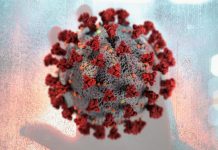When you receive your COVID-19 vaccination, you’ll be given a vaccine card as documentation.
The card will contain your name and birthdate, vaccine manufacturer and lot number, as well as where the vaccine was administered and the date the vaccine was given.
The card will also state if and when you need to return for a booster shot.
In addition to serving as a reminder for when to return for your next shot, there are several other important reasons to keep your vaccine card.
Why it’s important to hold onto your vaccine card
Sarah E. Lynch, PharmD, a pharmacist and pharmacy faculty at Binghamton University in Binghamton, New York, said one important reason to hold onto your vaccine card is the possibility that you might experience an adverse event.
If the event is linked to a particular lot number of the vaccine, having this information will allow for the connection to be made between what you are experiencing and the vaccine lot you received.
With the card, you’ll also know when you received your last dose if it turns out that future booster doses are needed.
S. Wesley Long, PhD, a researcher at Houston Methodist Hospital in Texas, added that knowing which vaccine you received could influence the composition of any future booster that you might receive.
Also, Long noted that proof of vaccination might be required for travel, work, school, volunteering, or activities as we move forward.
Nicole J. Hassoun, MA, PhD, a philosophy professor at Binghamton University, said that in addition to providing short-term proof of vaccination, vaccination cards may become the basis for immunity passports, documents that will be needed to access public spaces, and travel.
And there may be some additional perks to keeping a copy of your card handy.
“Some businesses are offering discounts for people who have been vaccinated,” Long said, “so you may need a copy or picture of your card to take advantage of those.”
How to best protect your vaccine card
“Since it’s unlikely you’ll need the card in day-to-day life,” said Long, “I would first take a picture and/or scan of the card and then place it someplace safe and secure.
“Some people have suggested laminating the cards, but then they can’t be updated with information in the future, such as the receipt of a booster shot,” he added.
Lynch suggested that taking a picture of the card front and back and keeping it on your mobile device is a good way to keep the card with you at all times.
She also noted that some states are rolling out digital vaccine passport applications.
“These will allow the card information to be logged in a digital app that can be easily accessed on a mobile device and shared at events where documentation is required, eliminating the need to carry around the physical card,” Lynch explained.
What to do if you lose your card
If you lose your card, don’t worry. The information isn’t gone forever.
In general, you should be able to contact the clinic or agency where your vaccination was administered to obtain a duplicate record, Long said.
In addition, this information should have been shared with your state’s immunization registry, so it may be possible to obtain proof of vaccination from your state.
Keeping your vaccine card in a safe location simply ensures that you have it readily available if and when you need it.
SOURCE: Healthline







